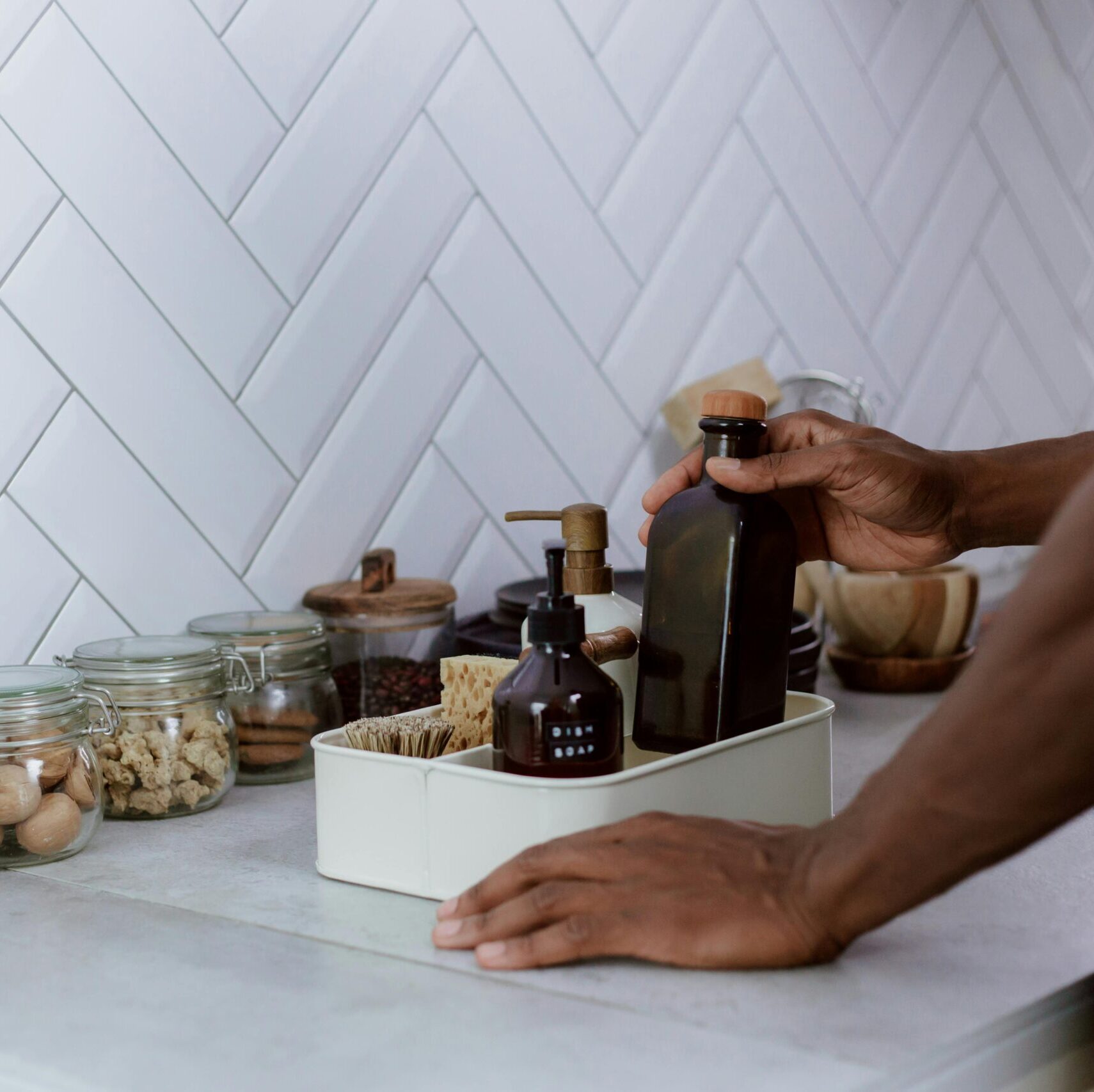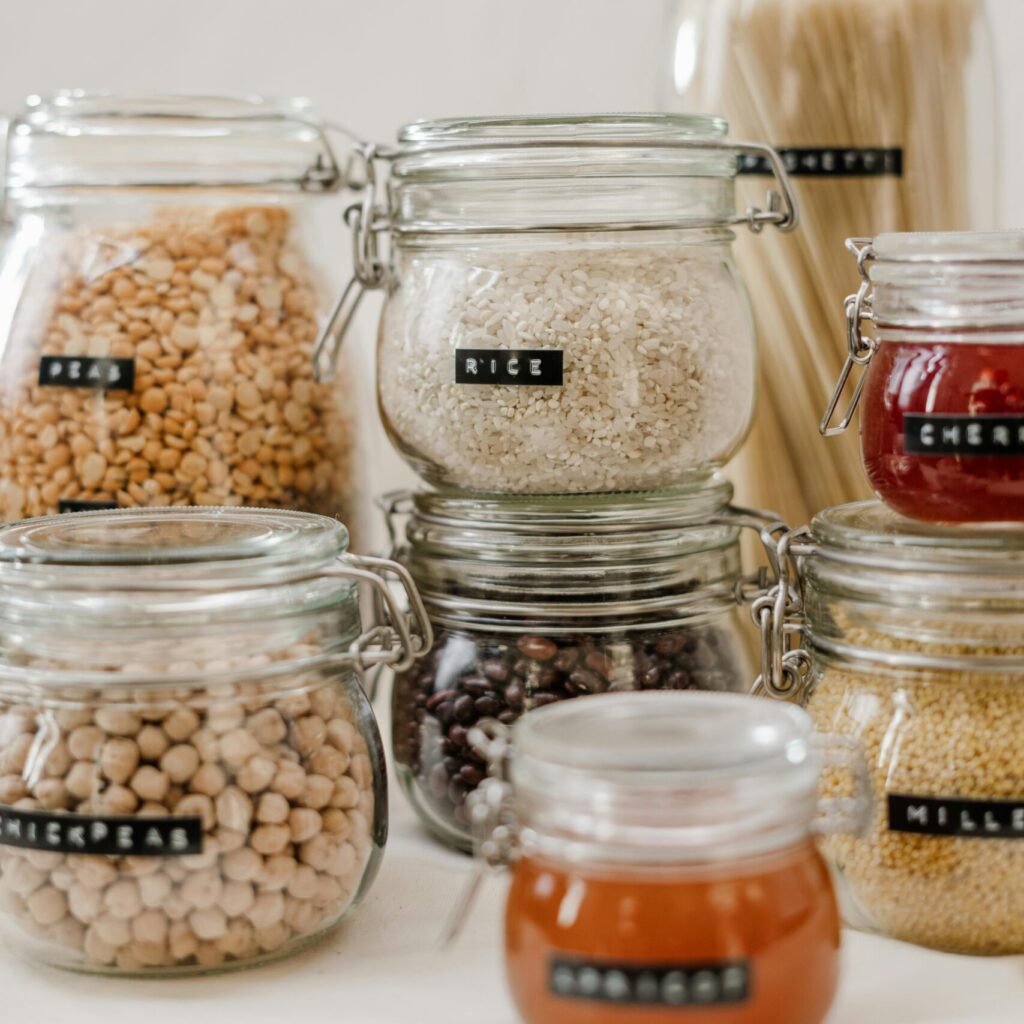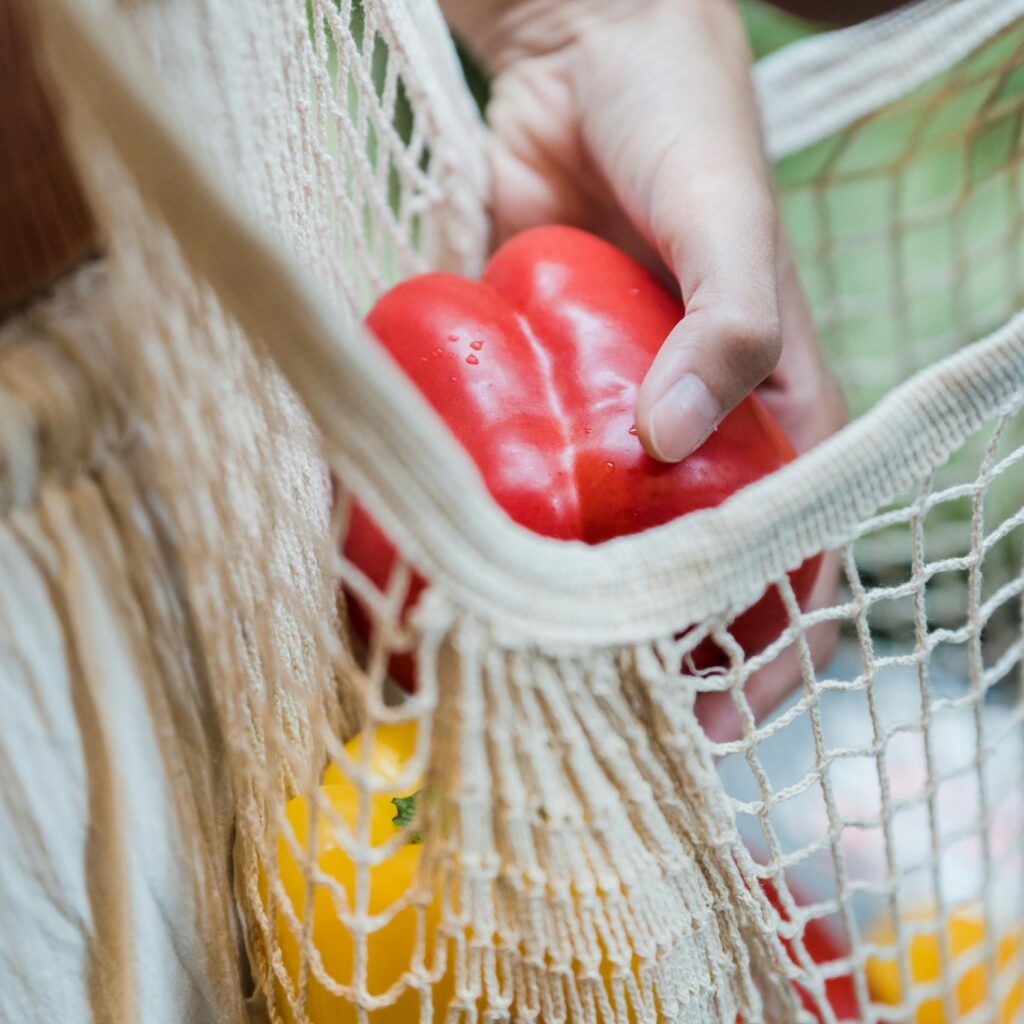The kitchen is one of the biggest culprits when it comes to single-use plastic. From food packaging to cling film and dish sponges, it adds up fast – and most of it ends up in landfills or floating in our oceans. But with a few small changes, your kitchen can run just as smoothly without all the plastic.

Here are some simple, sustainable tips to help cut down on plastic waste in the heart of your home:
1. Rethink Food Storage
Instead of plastic wrap and zip bags, try:
🌲 Beeswax wraps (like Bee’s Wrap or SuperBee) – reusable, washable, and compostable.
🌲 Silicone food bags – Stasher bags are a great durable option.
🌲 Glass containers – any jars or lidded glass dishes will do. Bonus: they don’t stain or absorb smells.
2. Buy in Bulk (and Store It Right)
Buying pantry staples like rice, pasta, oats, and spices in bulk can cut down significantly on packaging. Use reusable cloth or mesh bags when shopping, and transfer everything into glass jars or metal canisters at home.
Tip: Start saving old jam jars – they’re perfect for spices, dry goods, or even leftovers.

3. Ditch Plastic Sponges
Traditional sponges are made from petroleum-based plastic and can’t be recycled. Instead, try:
🌲 Compostable loofahs
🌲 Wooden dish brushes with replaceable heads
🌲 Cellulose sponges (plant-based and biodegradable)
Brands like Andrée Jardin, EcoCoconut, and If You Care all have great options.

4. Choose Refillable Cleaning Products
Instead of buying plastic bottle after plastic bottle of dish soap or surface cleaner, look for brands that let you refill:
🌲 Everdrop – refill tablets you mix with water at home, Europe-based
🌲 Blueland – similar concept, available in the US
🌲 Neat. – stylish and effective, with plastic-free refills
5. Switch to Plastic-Free Dish Soap & Detergents
Try dish soap bars or powdered dishwasher detergent that come in compostable or recyclable packaging.
🌲 No Tox Life makes a solid dishwashing block that lasts forever.
🌲 Ecover and Sonett offer plastic-free or bulk detergent options in Europe.
6. Avoid Individually Wrapped Produce
Those cucumbers in plastic sleeves? Gross. Shop at local markets or stores where you can pick your own produce and skip the packaging. Bring your own fabric bags to carry everything home with you.

7. Compost Your Food Scraps
This isn’t technically about plastic, but it’s still one of the best things you can do for a low-waste kitchen. Composting keeps food waste out of landfills, where it would otherwise release methane. If you’re in an apartment, try a small countertop compost bin or Bokashi system.
8. Use What You Have
You don’t need to throw everything away and start from scratch. If you already have plastic tupperware, keep using it until it wears out. The most sustainable option is almost always the one you already own.
Small changes in the kitchen really do add up. You don’t need to overhaul your entire routine overnight – just start with one or two little changes that feel manageable and go from there. Your kitchen (and your planet) will thank you.
